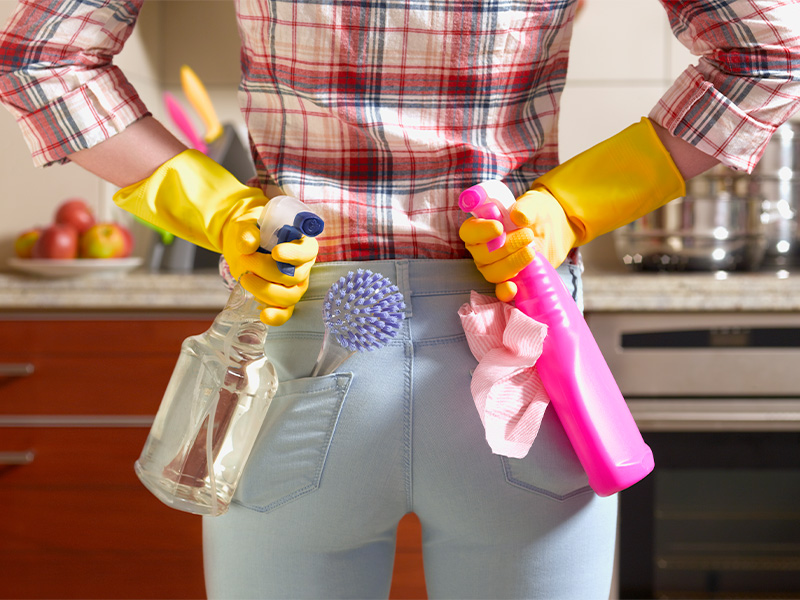How often do you really need to clean?
Most of us live fairly cleanly – or so we like to think. But do our cleaning habits around the home stand up to household hygiene recommendations?
We lead such busy lives and we’re constantly “on”, so it’s easy to overlook the little things that can make a big difference to your health and wellbeing – such as your cleaning habits for household items.
Take cleaning your water bottle. Do you wash it out every day before you fill it with fresh, clean water? Maybe.
And what about your bath towel – how often do you change it; just once a week? Pretty likely.
Here we chat to an expert, and look at recent hygiene data, to find out just how often you should be cleaning household items such as towels, sheets, cleaning cloths, showers, remotes, and even mattresses and cupboards.
The importance of solid cleaning habits
If Covid taught us anything, it’s how washing your hands can make a big difference in reducing the spread of germs.
But have we incorporated this hygiene awareness in our day-to-day lives? Probably not.
Should we? Absolutely.
Manager of education and sustainability programs at Accord Australasia Limited – the peak national industry association representing manufacturers and marketers of hygiene, cosmetic and specialty products – Dr Jennifer Semple says with such busy lives it’s easy to overlook the cleaning chores that can make a big difference.
- Bugs be gone: Eco-friendly ways to get insects out of your home
What is the least sanitary room in our homes?
Dr Semple says the room with the most bacteria may be a shock to some people.
“The kitchen has the most bacteria,” she says.
“Particular care must be taken with chopping boards, utensils, surfaces and cloths to prevent cross-contamination and potentially serious health consequences, especially when preparing riskier foods, like raw meat, poultry, seafood and raw vegetables.”
And there’s one specific item in people’s kitchens that is usually covered with harmful bacteria – their kitchen sponge or dishcloth.
In fact, the dishcloth can have up to one million times the number of bacterial colonies found on the toilet seat.
To avoid this, Dr Semple says different cloths should be used for different jobs to prevent cross-contamination, and cloths should also be cleaned and disinfected or replaced regularly.
The WashWise website also gives context around the importance of good cleaning and hygiene and further practical tips.
How often should you clean common household items?
How often different areas need to be cleaned depends on many factors, including how many people share a space, their lifestyles and health status.
“While some surfaces only need an occasional dust, wipe or vacuum, others need regular cleaning and potentially disinfecting to help maintain good health,” Dr Semple says.
She says while there are no definitive rules for cleaning certain items, unless someone is ill which requires a more frequent routine, these timings are a guide.
- Water bottles: Emptied each day and given a clean either in the dishwasher or hand washed.
- Towels: Once a week, although more frequently if towels are shared or not hung to dry after use.
- Sheets: Once a week.
- Interior of cupboards: Food splashes, water and other stains should be removed as they occur and cupboards should ideally be given a thorough interior clean every few months.
- Shower: It depends how many people are using it; keep it cleaner by drying hard surfaces after each use.
- Toilet: Once a week.
- Mattresses: Every six months.
A few often-forgotten areas, which should be regularly cleaned, include:
- High-touch surfaces, such as light switches and door handles.
- TV/gaming remotes.
- Ceiling fans.
- Cutlery drawers.
Written by Andrea Beattie.





